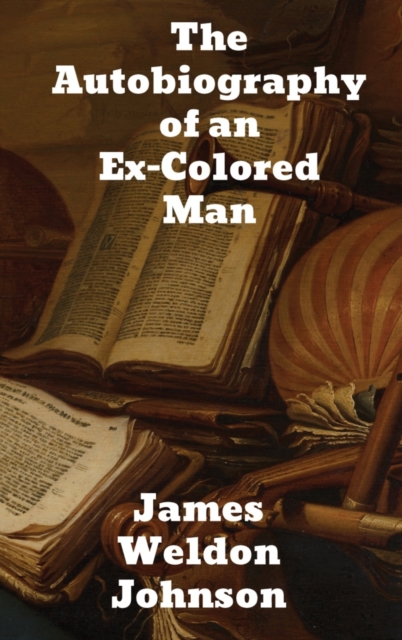
The Autobiography of an Ex-Colored Man Hardback
by James Weldon Johnson
Hardback
Description
The Autobiography of an Ex-Colored Man (1912/1927) by James Weldon Johnson is the fictional account of a young biracial man, referred to only as the "Ex-Colored Man," living in post-Reconstruction era America in the late nineteenth and early twentieth centuries. He lives through a variety of experiences, including witnessing a lynching, that convince him to "pass" as white to secure his safety and advancement, but he feels as if he has given up his dream of "glorifying" the black race by composing ragtime music.
Johnson originally published The Autobiography of an Ex-Colored Man anonymously in 1912, via the small Boston publisher Sherman, French, & Company. He decided to publish it anonymously because he was uncertain how the potentially controversial book would affect his diplomatic career. He wrote openly about issues of race and discrimination that were not common then in literature. The book's initial public reception was poor. It was republished in 1927, with some minor wording changes, by Alfred A. Knopf, an influential firm that published many Harlem Renaissance writers, and Johnson was credited as the author. Despite the title, the book is a novel. It is drawn from the lives of people Johnson knew and from events in his life. Johnson's text is an example of a roman à clef The novel begins with a frame tale in which the unnamed narrator describes the narrative that follows as "the great secret of my life."
The narrator notes that he is taking a substantial risk by composing the narrative, but that it is one he feels compelled to record, regardless. The narrator also chooses to withhold the name of the small Georgia town where his narrative begins, as there are still living residents of the town who might be able to connect him to the narrative. Throughout the novel, the adult narrator from the frame interjects into the text to offer reflective commentary into the events of the narrative. Born shortly after the Civil War in a small Georgia town, the narrator's African-American mother protected him as a child and teenager. The narrator's father, a wealthy white member of the Southern aristocracy, is absent throughout the narrator's childhood but, nevertheless, continues to provide financial support for the narrator and his mother. Because of that financial support, she had the means to raise her son in an environment more middle-class than many blacks could enjoy at the time. The narrator describes learning to love music at a young age as well as attending an integrated school. It is through his attendance at this school that the narrator first realizes he is African-American and thus subject to ridicule and mistreatment for his racial heritage. This "discovery" occurs when he is publicly corrected by his teacher and the headmaster when he stands when "the white scholars" (schoolchildren) are asked to stand. Returning from school, the distraught narrator confronts his mother, asking her if he is a "nigger." His mother reassures him, however, noting that while she is not white, "your father is one of the greatest men in the country—the best blood of the South is in you." The narrator notes that this event became a racial awakening and loss of innocence that caused him to suddenly begin searching for—and finding—faults in himself and his mother, setting the stage for his eventual decision (though far in the future) to "pass" as a white man.
Information
-
Item not Available
- Format:Hardback
- Pages:134 pages
- Publisher:Binker North
- Publication Date:16/03/2020
- Category:
- ISBN:9781774414736
Other Formats
- Hardback from £9.39
- Paperback / softback from £2.99
- EPUB from £0.99
- PDF from £2.02
Information
-
Item not Available
- Format:Hardback
- Pages:134 pages
- Publisher:Binker North
- Publication Date:16/03/2020
- Category:
- ISBN:9781774414736






